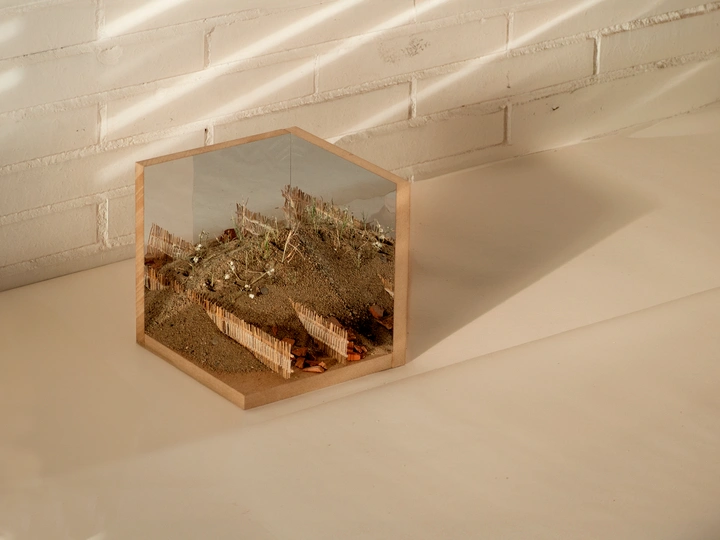Nature-based Design for Coastal Landscape

I am an architect with a degree from ETSAV-UPC. I also have a Master's in Sustainability in Architecture, which I completed with distinction. Taking into account the complex metabolism of natural ecosystems, I advocate the decarbonisation of environmental interventions from a holistic perspective.
Through my work, I strive to design landscapes that can express themselves, reinterpret the territory and offer opportunities that were not previously possible. This approach aims to create a more respectful reality towards nature, designing a dynamic and evolving project in harmony with the environment.
For the last three years I have been part of Cíclica, a cooperative founded by professionals in architecture and research, dedicated to promoting environmental balance and social justice. My role includes sustainability consultancy, urban regeneration, landscaping and research.
I am also a ceramist with a deep interest in traditional ceramics and their relationship with the local environment. My honours thesis in architecture explored the historical interplay between architecture, cuisine and ceramics. This research led to a funded artist residency and personal ceramic art exhibition at Konvent.0, an experimental space that fosters creativity and innovation.
My work explores how culture influences nature. By exploring the interplay of land, earth and water in the creation of utilitarian pieces and how traditional glazes, clays and firing techniques reflect local materials and cultural practices. Through my practice I aim to preserve the delicate balance between human creativity and the natural world.
The work addresses concerns about our relationship with the environment and our impact on the planet. The lack of appreciation for the landscapes in which we live has led me to focus on how we can better understand and respect our surroundings. While there is extensive literature on this subject in other countries, less attention has been paid to the rich landscapes and gardens of the Mediterranean. Discussing these areas encourages knowledge, appreciation and protection.
The research aims to contribute to discussions and decisions on nature-based practices that sustain and preserve landscapes for future generations, avoiding a static, museum-like approach. Nature should be both enjoyed and protected. By understanding and embracing nature, we ensure its continued evolution and harmonious coexistence.
Coastal ecosystems are dynamic and adaptive, yet current management and design often prioritise non-environmental considerations. These choices can result in significant energy expenditure to maintain situations that are at odds with established ecosystems.
In addition, global warming poses a direct threat to coastal areas, including sea level rise. These landscapes are vulnerable to climate change. Therefore, the research focuses on understanding and conserving these critical ecosystems and providing nature-based strategies for sustainable development and increased resilience. By establishing a systematic and parameterised conceptual framework, it will guide future efforts in coastal restoration and protection.
The research includes theoretical frameworks for ecosystem-based management, such as the UNEP-DHI Catalogue of Risk Management Options. These resources are used to develop a catalogue of strategies and techniques for the design of the Mediterranean coast, including basic criteria and boundaries. Techniques are classified according to whether they are nature-based solutions, nature-replicating techniques or structural elements.